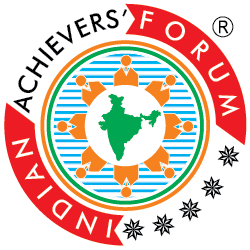“We understand the value of prioritising Sustainability & CR in business”
Sustainability & CR is not an obligation, but a need and responsibility of all. And embedding it within the business is a must for corporates. Elaine Weidman, VP – Sustainability & CR, Ericsson tells Bachan Singh why there is a real need for transformative and not incremental solutions for climate and sustainable development by the Information and Communication Technology (ICT) sector and how the sector will evolve in the coming times. Excerpts:
What is Sustainability for you and what drives CSR at Ericsson?
According to me, it is about having a holistic approach and embedding it within the business. Further, it is not a static topic, it changes with the constantly changing world. In the 90s, Sustainability was more about compliance to legislation, these days it is about understanding global societal challenges and finding solutions in the Post 2015 development process.
At Ericsson, our focus is our technology. We try to understand the negative aspects that we need to address and how can we positively impact the society. The pace of technological change has never been greater, and there are so many opportunities for business to play a role. At Ericsson, we are embracing this opportunity to create positive change. And our CEO, Hans Vestberg drives that change. He understands the value of prioritising Sustainability & CR in the business.
How do you rate the corporate initiatives in terms of CSR around the globe? How has Ericsson positioned itself to take this forward?
Different parts of the world are in different stages. Europe and North America are more advanced with legislation and policies. China is making a big push and India is innovative with focus on green passport guidelines by DoT e-waste and the legislation for mandatory CSR spend as per the Companies Act, 2013.
But globally, we focus on our own business, ensuring concrete targets to measure our progress. We also use our industry leadership to be progressive on advocacy, in areas like Broadband’s role in the post 2015 sustainable development agenda. This is not new to Ericsson, as we have over 20 years of sustainability reporting to our stakeholders.
The domains of Sustainability and CR overlap in many areas. How the two are connected and is there any need to de-link the two?
We see it in two ways. On one hand, minimise your risks and conduct business responsibly. On the other hand, maximise your positive impacts. These areas might be of varied interest to different stakeholders, but they are interconnected. To share your credible, positive story, you need to run a sound and ethical business.
In totality, what responsibility does communication technology sector carry in order to make our ecosystem sustainable?
First, Information and Communication Technology (ICT) is transforming industries, people and society. There is a real need for transformative and not incremental solutions for climate, and sustainable development more broadly, and we have a responsibility to make the potential of our sector known to policy-makers and government leaders.
Secondly, as networks become an infrastructure for everything we do, trust in the network is imperative, so our sector also needs to work much more actively with issues like privacy, security and human rights more broadly.
From your experience, can you give us some examples of how businesses can become more sustainable?
Companies can rethink over the value chain with a sustainability lens. There can be many opportunities to reduce resource and energy consumption, and even waste while also saving money. One big effort we undertook was to consolidate our data centers. This reduced energy consumption by some 40%. Commit to targets. Measure and track performance, according to global standards, for instance, GRI. Embrace the UN Guiding Principles on Business and Human rights. Companies have a duty to respect human rights throughout their value chain, and in an increasingly transparent networked society, this will become even more important.
Can you enlist the top 3 achievements at Ericsson (in terms of Sustainability and CR practices) that you are most happy about?
a). Embedding CR in overall governance of the company, Code of Business Ethics, UN Guiding Principles, etc. We have targets at the highest level of the company that are measured and performance is followed up by our Executive Management Team.
b). Establishment of Technology for Good programme which connects to our core business – technology and the expertise of our employees to help meet global challenges. This makes our work much more relevant to the business, our stakeholders, and ensures a more lasting effect.
c). Scaling up of Connect to Learn, our initiative in India. We are now in more than 16 countries and positively impacting more than 40, 000 students. In 2014, we formalised a partnership with the UK development agency, DFID. Public-private partnerships such as this are key to the success of various initiatives.
Kindly share which all CR initiatives Ericsson is carrying out globally and what plans do you have for India in 2015-16?
For 2015-16 in India, we will have a big focus on education and skill building for employability and deployment of Connect To Learn with partners here. We will also focus on energy, e-waste and disaster management.
As per your understanding, what kind of organisational leadership or communication systems have to be in place to ensure that the Corporate Responsibility effort will last beyond the current leadership?
Sustainability and CR must be embedded in the governance of the company – in the policies, culture and ways of working. For any CSR programme, it is vital to ensure employees awareness and their engagement with the programme. Employees must also live in sync with the programme. Also, it is imperative to think about helping your consumers before you become more sustainable. Once consumers are engaged, the rest of the organisation comes on board much more readily.
What is the biggest hurdle you have been able to cross as VP – Sustainability & CR at Ericsson?
ICT can do so much when it comes to Sustainable Development. Prioritisation is always a challenge, but we have set a good strategy for that. Joining the Global Leadership Team of the company was an important milestone, marking the growing importance of the area.
How do you see the evolution and future of corporate social responsibility?
In my view, the future will increasingly be about partnerships, public private partnerships in particular. This year at the World Economic Forum, there is a lot of discussion about the world actually being worse off, in terms of natural disasters, conflicts, etc. The challenges are great, and no single entity – company, government, civil society can tackle them on its own. Much more cooperation is needed going forward, and finding models that have impact and scale.









